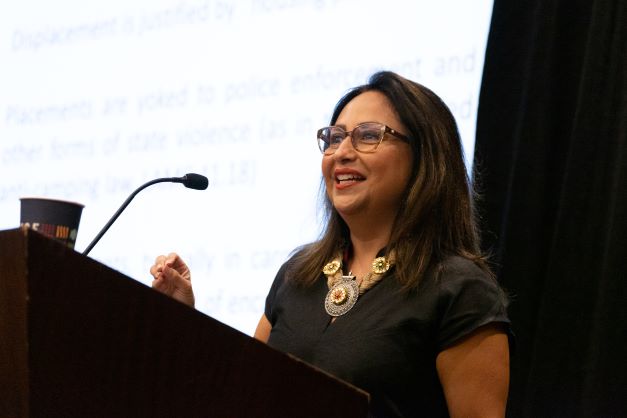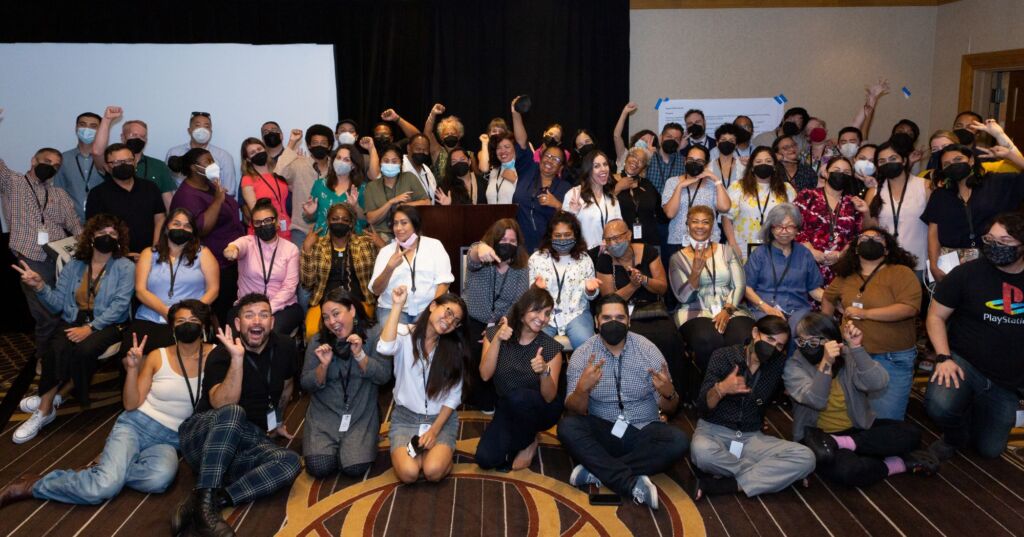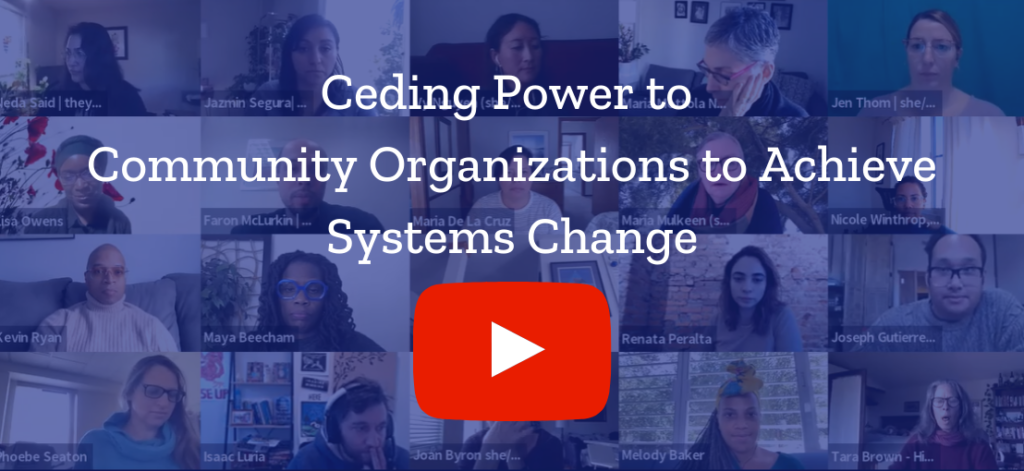Los Angeles’ Investment in Collective Visioning Sets Trajectory for Leading Edge Innovations
Setting a shared vision to advance work individually and collectively
At the beginning of the Fund for an Inclusive California’s work with the LA-based Community Advisors, they raised the need for a planning retreat that would bring groups together and build relationships to coalesce in a broad, shared vision for housing justice and equitable development.
We resourced and helped convene the LA planning retreat in late 2019 to set a shared north star vision for housing justice across 15 organizations that continues to guide Community Advisors today. As a result of this retreat participants agreed to take the bold step of creating a regional planning and coordination framework, the LA Housing Movement Lab, to analyze progress, campaigns and opportunities on an on-going basis.
The North Star process was really profound in the sense that we are working in a bunch of different spaces on a bunch of different campaigns, but there is a connective overarching objective that we’re building towards. It has created a mind-expanding experience in terms of how to build strategy.
Public Counsel, LA Community Advisor
By working together with the convening support of the Fund and their north star vision, they have been able to align on longer-term work, not just from campaign to campaign. This is a key strategy in longer-term power building. Each organization continues powerful individual organizational work that is relevant to their base, and builds under this shared vision.
“Not having to react in the moment with 15 different small policy proposals, but being ready to say what we need to decommodify housing, and having that at the start of the echo chamber, ready to roll, that was really, really helpful.”
– Strategic Actions for A Just Economy (SAJE), LA Community Advisor
Creating Leverage for Public Dollars and Policy: $14 Million for Community Land Trusts
In 2020, LA groups came together to advocate for Project Roomkey, which allowed Californians made vulnerable by the pandemic to access affordable housing in hotels and motels. In 2021, some of these LA groups established the Los Angeles Acquisition/Rehabilitation Working Group in partnership with Los Angeles Community Land Trust Coalition (LACLTC), affordable housing developers, Legal Aid Foundation of Los Angeles, and Enterprise Community Partners.
The working group secured $14 million in public funding to resource social housing strategies focused on community land trusts, received additional philanthropic funding and successfully advanced policy changes to work toward tenant ownership through the community land trust model.
Developing and Passing Landmark Policy: Measure ULA
Today, local advocates continue to advance their shared goal of decommodifying 20% of all housing stock in Los Angeles County by 2050. Measure ULA (ULA), an idea that was incubated in the Housing Movement Lab and delivered on by a strong coalition of homeless service providers, affordable housing nonprofits, labor unions, and tenants rights groups.
Community Advisors and their allies successfully drafted and passed this ballot measure during the November 2022 election cycle. Also known as the “mansion tax,” advocates estimated the one-time tax on sales of residential and commercial property over $5 million would generate $900 million annually in new revenue for supportive and affordable housing programs, including development, construction, acquisition, rehabilitation, and operation of housing. Funds will also help pay for programs that provide short-term emergency rental assistance, eviction defense, tenant outreach and education, cash assistance for low-income seniors and individuals with disabilities, and tenant harassment protections. Pending litigation efforts have forestalled the full implementation of ULA.
Los Angeles’ housing justice movement has a critical opportunity to make advances in spite of the lawsuits. Given that Mayor Karen Bass has committed a modest $150 million for ULA while the lawsuits are pending, advocates are now focused on how the city is allocating these dollars. With $10 million allocated for housing innovations, advocates have an opportunity to pilot models like community land trusts, as well as informing the guidelines with pro-social housing components, such as strong tenant management with city-owned properties.
“There is continued advocacy so the city sets a plan and that implementation is aligned with the vision. There is urgency to show that these are viable models…and how quickly we can show success.”
Community Advisor
Leading Innovations: Labor and Housing Aligning
Strong collaboration and connections between worker organizing and housing justice is also a distinctive feature of the Los Angeles landscape.
- Community Power Collective’s constituency, all street vendors are tenants. The organization engaged in tenant organizing with street vendors as the pandemic worsened the living and working conditions of street vendors and their families.
- ACCE members in Los Angeles are engaging workers on three fronts, including its partnership with SEIU in a campaign to hold the University of Southern California responsible for its expansion and efforts to gentrify neighborhoods and increase displacement of low-income residents living near the campus.
- ACT-LA, Korean Immigrant Workers Alliance, and Innercity Struggle are building relationships with local labor unions and worker centers as their members increasingly identify the lack of affordable housing as their primary concern.
As with other regions throughout the state, Los Angeles renters are organizing to strengthen tenant protections and make them permanent. The Keep LA Housed Coalition continues to work towards strengthening the local ordinance that protects tenants from landlord harassment.
At the county level, the coalition continues to advocate for a Tenants Bill of Rights. In collaboration with statewide partners, ACCE Los Angeles, Inner City Struggle, and L.A. Voice strongly advocated for and mobilized their members to secure the passage of SB-567, the Homeless Prevention Act that closes loopholes to prevent unjust evictions, provides mechanisms for accountability and enforcement, and gives residents and cities the power to sue landlords who illegally evict or raise rents.
Leading Innovations: Community Ownership and Control
By gathering and setting an aligned vision, partnerships are underway that are at the leading edge of housing justice innovations in the state, all coming from Los Angeles.
- Community Power Collective has partnered with Fideicomiso Comunitario Tierra Libre to acquire and jointly operate buildings. This partnership seeks to build the organizing capacity of its residents to advocate for policies that will advance community control of land and housing at the city and county level.
- The Social Justice Learning Institute (SJLI) has secured capital to purchase land and develop 120 units of affordable housing. SJLI seeks to practice a collective ownership model so that residents will become 50% owners of the project. This project aims to “show the city of Inglewood that you can create 100% affordable housing and it will not create a ‘ghetto.’”
- Little Tokyo CDC provides technical assistance and capacity building to expand community ownership models through partnerships with community land trusts. Little Tokyo CDC is committed to partnering with local base-building organizations so that BIPOC communities can learn to “develop on their own.”


